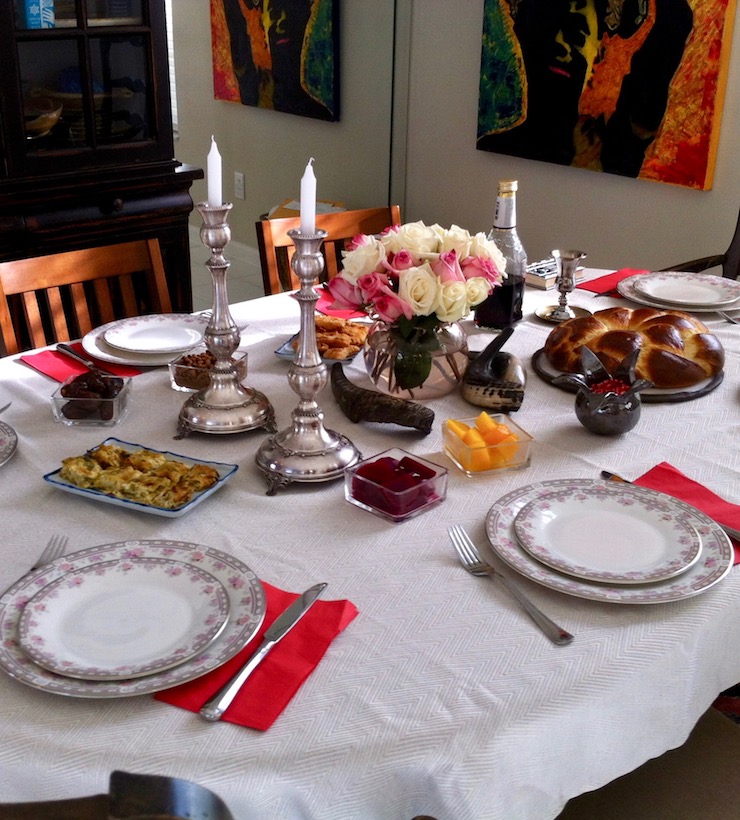I love learning about different cultures and traditions, and thought that if you are like me, you might be interested in taking a glimpse into the Jewish new year.
The Hebrew or Jewish calendar is a lunisolar calendar and has 29.5 days per month, resulting in 354 days a year. In the past, before Roman times, this was the only calendar used by Jews. In modern times, the Gregorian calendar is the main calendar used by everyone, including Jews. The Hebrew calendar is only used for the Jewish Holidays and Jewish events. In order to keep the two calendars synchronized, a whole month is added to the Hebrew calendar seven times in every 19 years. Which means that my Hebrew date of birth and my Gregorian date of birth synchronize every 19 years.
Anyway, that is the reason why every year, the Jewish Holidays fall on different dates in the Gregorian calendar. They go by the Hebrew calendar to keep them in synch with the seasons. Rosh HaShanah, which literally means in Hebrew “the head of the year,” is the beginning of the Jewish year, and is one of the major Jewish Holidays.

What I love about the Jewish Holidays is that they are ceremonial. It’s not just another festive meal. There is always a short (or long) ceremony going on before the meal is served. On Rosh HaShanah, the ceremony involves reciting different blessings around the table before the meal. These blessings include wishes for a sweet new year, for living in peace with no enemies, for being prosperous, for being leaders who shine light and goodness upon the world, for being deserving for God’s approval, ect. Each blessing is symbolized by some food where the connection is usually a pun between the Hebrew/Aramaic name of the food and the meaning of the blessing.

European and American Jews (Ashkenazi) usually recite one blessing that includes apples and honey for a sweet new year.
Middle Eastern, Mediterranean, Asian and African Jews (Sephardic) include these two foods in their blessings, as well as all of the following foods: dates, pumpkin or carrot, beet, leek, head of fish of beef (the meat from the cheeks), and black-eyed peas. As you recite each blessing, you have a bite of the corresponding food. So even though it’s not the main meal yet, you do not remain hungry. On the contrary. By the time we are done with the ceremonial part of the evening, most of us are already full.
But of course, we can’t skip the meal, which usually includes some sweet dishes for a sweet new year. Most of us who celebrate already have a set menu for Rosh HaShanah, or at least we have an idea of what goes on the table. However, there are always last minute changes because our guests have special requirements, or we couldn’t find some of the ingredients we were counting on, or a guest responsible for bringing one of the dishes bailed out. Whatever the reason, here are some recipes that can save the day in short notice. I chose these recipes as they include ingredients that are showcased in the blessings recited at the Holiday table, and some dishes with sweet inclination.
Wishing all who celebrate (and those who don’t) a happy, sweet, and prosperous new year!

Chestnut Pumpkin Soup
Pomegranate Soup with Turkey Meatballs
Kubbeh in Beet Soup
Celery and Beet Salad
Moroccan Carrot Salad
Fish in Tomato Sauce
Apple Khoresh
My Grandmother’s Cheek Meat Stew
Apple Cake with Dates and Pomegranate
Apple Poppy Seed Cake
